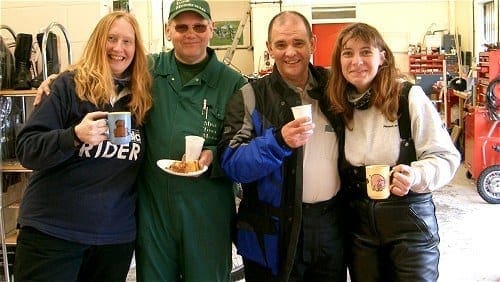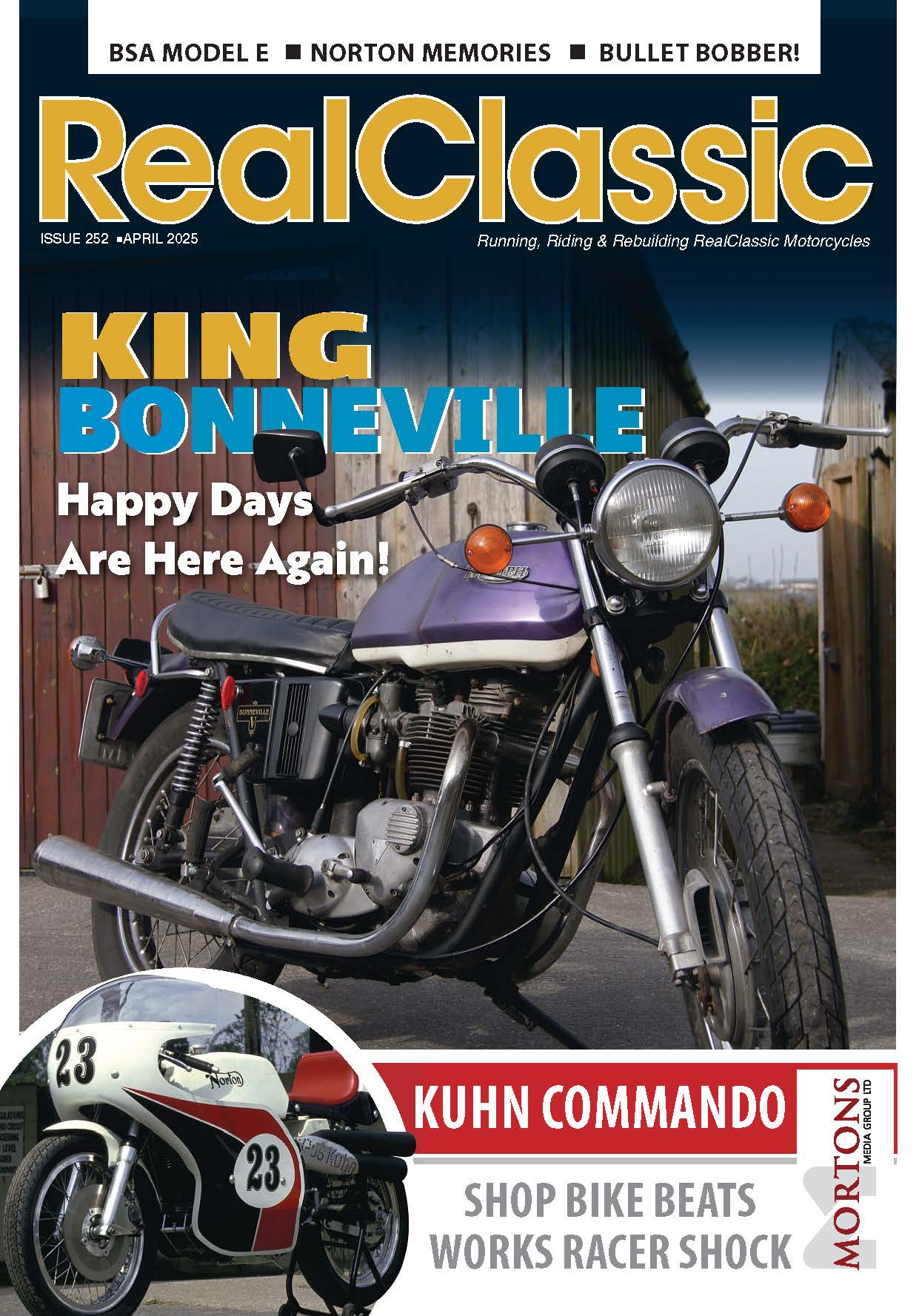
Do you prefer cappuccino, or is builder’s tea more your style? Rowena Hoseason wonders if there’s still room for all sorts in classic biking…
Agent Orange, Frank’s foremost feline friend, doesn’t particularly appreciate me using this expression but I will risk catty wrath by saying it nonetheless: there are indeed many different ways to skin a cat.
Take bike shops. The modern trend is towards glossy, white-walled, out of town superstores which offer a massive choice of motorcycles with a super selection of riding kit plus all manner of aftermarket accessories. Everything is computerised and the nice lady in the aftersales care department can look up the code for an oil filter on her system and then send a request to the picking department which will have it delivered to the desk while the froth on your £1 cup of cappuccino cools.
But old-fashioned bike shops still exist. I saw plenty of them on the Round Britain Ride a couple of years back – traditional corner stores which have been in a family for a couple of generations, where the glass above the door still says ‘Fresh Fruit’ or ‘Player’s Navy Cut’. There are usually fewer bikes on display and you probably wouldn’t want to wear, let alone buy, any of the crash helmets which have been hosting a family of spiders for several years. Your coffee comes free in a mug (milk and sugar?). The man behind the counter usually has grubby hands and he not only knows which set of points you need but has some genuine new-old-stock in a brown wrapper… somewhere around here… can you come back in half an hour?

Take bike museums. The modern trend is towards glossy, white-walled out of town mega-museums with hall after hall of gleaming machines displayed alongside the convenient opportunities for corporate entertainment and a splendid range of convention facilities and conference rooms. You can spend almost as much time in the museum shop as in the museum itself, browsing through a carefully chosen selection of entirely appropriate reproduction automobilia. And pick up wireless broadband in the café, of course.
|
But old-fashioned bike collections still exist. You can still find old sheds full of higgledy-piggledy rows of motorcycles, where priceless prototypes rub wheels with common commuter hacks, and weird, one-off oddities command as much attention as bank-balance-busting concours d’elegance champions. The shop will be staffed by volunteers who, when they’re not serving burgers at the barbecue, spend their time cleaning and prepping the bikes themselves. In fact, if you’re not doing anything why don’t you pick up that cloth and…
Take bike clubs. The modern trend is towards professionally-run organisations with posh premises and full-time staff and glossy publications and merchandise catalogues and offshoot businesses which pay for all the above and… then there’s the guys who just meet up down the pub every other week, and go for a ride on sunny Sundays, and who swap spares, share tools and commission a small batch of rare components to keep their bikes on the road for a while longer. Take bike magazines – no, on second thoughts, let’s not! |
Old Motorcycle Stuff on eBay.co.uk |
A little while ago, someone on the Message Board asked why we bother riding old bikes at all, given how troublesome they can be and how good modern motorcycles are by comparison. My answer was borrowed from JFK; ‘we choose to (do these things) not because they are easy, but because they are hard, because that goal will serve to organize and measure the best of our energies and skills, because that challenge is one that we are willing to accept…’.
Unlike my elders, but like many of the people who read this site (I suspect), I have no natural connection whatsoever with the old British bike industry. I grew up riding only current-model Japanese bikes. Yet I choose now to ride old and British motorcycles because of the connection they provide to the past, to the industrial and social history of my parents’ era and beyond. My old bikes offer an escape from the ferocious glare of modern, minutely-measured efficiency and all its undoubted benefits.
For me, classic bikes are a quick ticket back to an older, slower, less regimented way of life. I wouldn’t want to live there, but it’s wonderful to be able to visit.
What does your old bike do for you?

1938 Rudge Special





